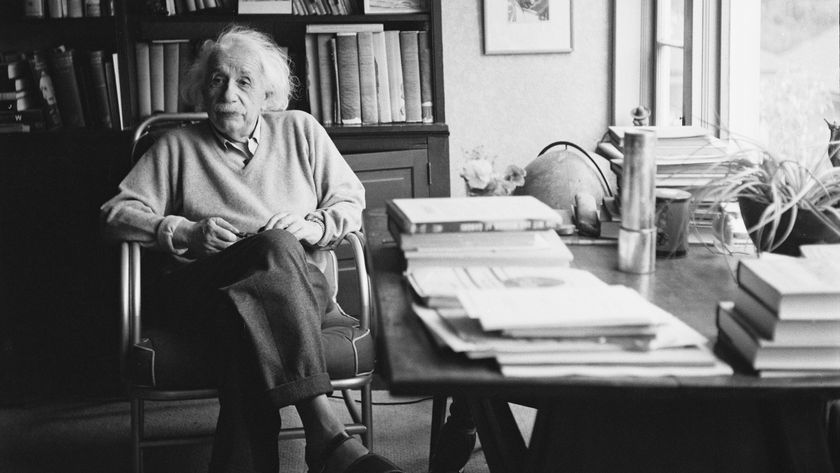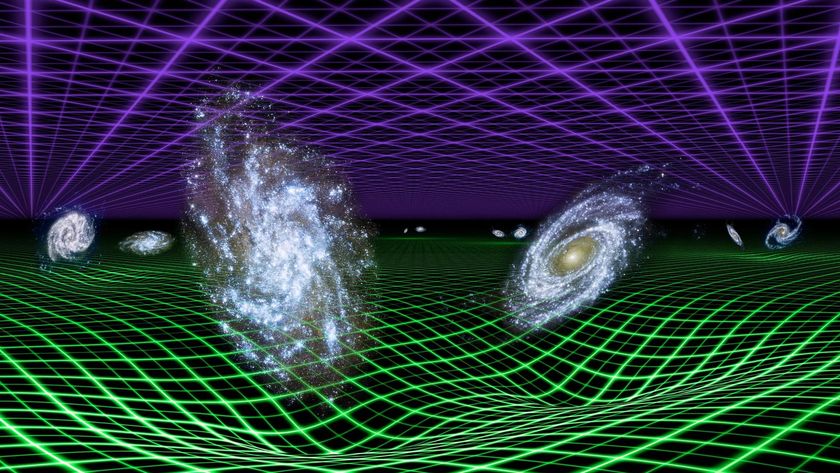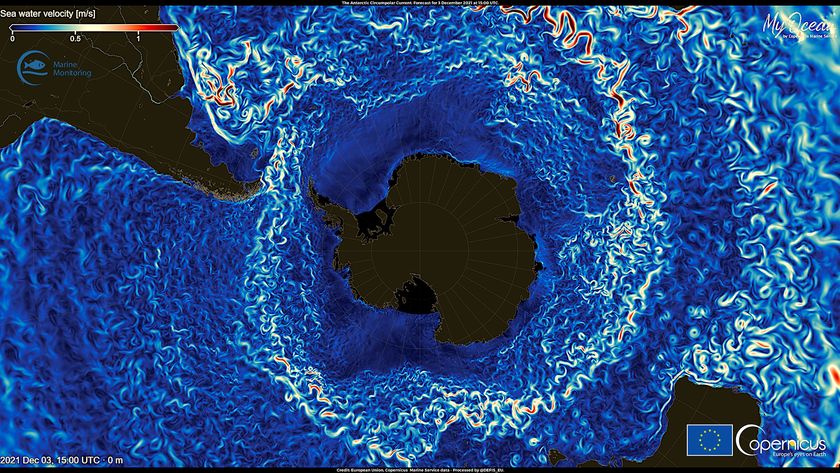
It's a question that has plagued philosophers and scientists for thousands of years: Is free will an illusion?
Now, a new study suggests that free will may arise from a hidden signal buried in the "background noise" of chaotic electrical activity in the brain, and that this activity occurs almost a second before people consciously decide to do something.
Though "purposeful intentions, desires and goals drive our decisions in a linear cause-and-effect kind of way, our finding shows that our decisions are also influenced by neural noise within any given moment," study co-author Jesse Bengson, a neuroscientist at the University of California, Davis, wrote in an email to Live Science. "This random firing, or noise, may even be the carrier upon which our consciousness rides, in the same way that radio static is used to carry a radio station."
This background noise may allow people to respond creatively to novel situations, and it may even give human behavior the "flavor of free will," Bengson said. [The 10 Greatest Mysteries of the Mind]
Predetermined or random
Sir Isaac Newton's laws of classical mechanics suggested the universe was deterministic, with an inevitable effect for every cause. By Newtonian logic, a "freely" made decision is completely predetermined by the actions that precede it.
But quantum physics revealed that subatomic particles' behavior is inherently unpredictable. As a result, physical forces like gravity and electromagnetism can't completely dictate the future based on past events, thus leaving a tiny window for free will to operate through the random behavior of subatomic particles.
Sign up for the Live Science daily newsletter now
Get the world’s most fascinating discoveries delivered straight to your inbox.
Still, many philosophers doubted that the random behavior of miniscule particles could translate to free will, because quantum effects don't hold much sway at larger scales.
Experiments performed in the 1970s also raised doubts about human volition. Those studies, conducted by the late neuroscientist Benjamin Libet, revealed that the region of the brain that plans and executes movement, called the motor cortex, fired prior to people's decision to press a button, suggesting this part of the brain "makes up its mind" before peoples' conscious decision making kicks in.
Hidden signal?
To understand more about conscious decision making, Bengson's team used electroencephalography (EEG) to measure the brain waves of 19 undergraduates as they looked at a screen and were cued to make a random decision about whether to look right or left. [10 Surprising Facts About the Human Brain]
When people made their decision, a characteristic signal registered that choice as a wave of electrical activity that spread across specific brain regions.
But in a fascinating twist, other electrical activity emanating from the back of the head predicted people's decisions up to 800 milliseconds before the signature of conscious decision making emerged.
This brain activity wasn't strictly a signal at all — it was "noise," part of the brain's omnipresent and seemingly random electrical firing. In fact, neuroscientists usually consider this background noise meaningless and subtract it when trying to figure out the brain response to a specific task, said Rick Addante, a neuroscientist at the University of Texas at Dallas who was not involved in the research.
In other words, some hidden signal in the background noise of the brain seemed to determine people's conscious decisions before they made them.
"That's what's wild about it; it's not all noise," Addante told Live Science. "The question then becomes, what is it, and what is the information that it contains?"
Open question
The new study doesn't prove or disprove free will, Addante said.
"If there's something else occurring before our conscious awareness that's contributing to our decision, that raises the question about the extent of our free will," Addante said. On the other hand, the findings might open the door to free will by suggesting it rides on, but isn't quite the same as, the random background noise in our brains, he said.
But Ali Mazaheri, a neuroscientist at the University of Amsterdam in the Netherlands, sees the results as a blow to true free will.
The findings suggest that previous biases in the firing of the brain's sensory processing systems add up, leading people to decisions that the conscious brain later follows, said Mazaheri, who was not involved in the study.
Useful illusion?
But if free will is an illusion, why does it feel so real?
Though that's still a mystery, one theory is that life would be too depressing without the illusion of choice, making it hard for humans to survive and reproduce.
"The idea is that you have the illusion of free will as an artifact to be able to get through life," Mazaheri told Live Science.
The new findings were published in April in the Journal of Cognitive Neuroscience.
Follow Tia Ghose on Twitter and Google+. Follow Live Science @livescience, Facebook & Google+. Original article on Live Science.

Tia is the managing editor and was previously a senior writer for Live Science. Her work has appeared in Scientific American, Wired.com and other outlets. She holds a master's degree in bioengineering from the University of Washington, a graduate certificate in science writing from UC Santa Cruz and a bachelor's degree in mechanical engineering from the University of Texas at Austin. Tia was part of a team at the Milwaukee Journal Sentinel that published the Empty Cradles series on preterm births, which won multiple awards, including the 2012 Casey Medal for Meritorious Journalism.











